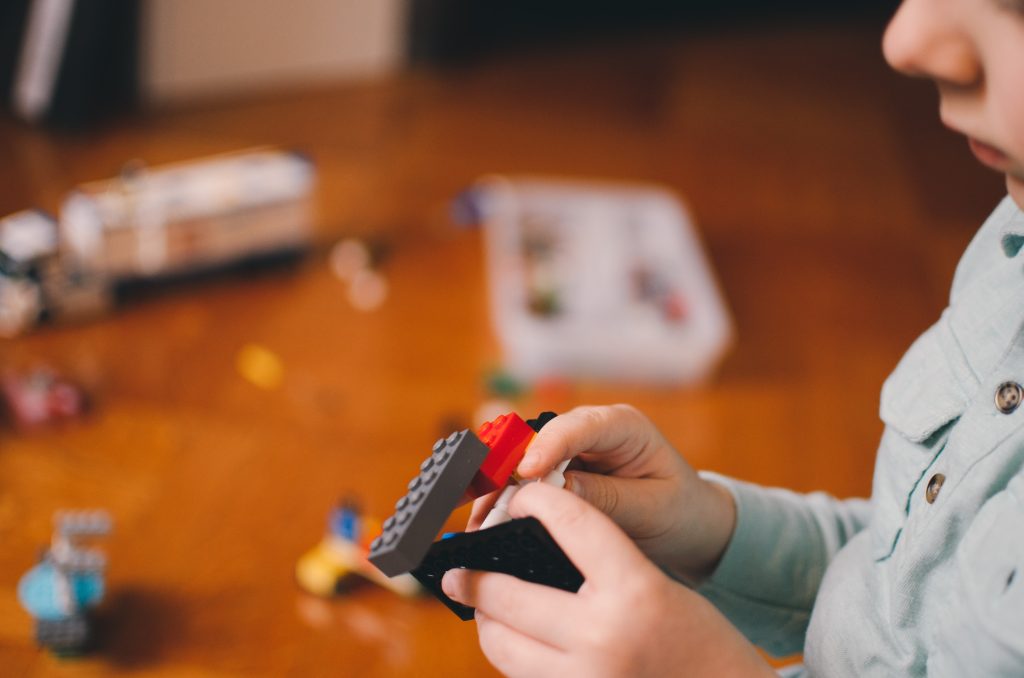In today’s world, children are often surrounded by screens and electronic devices. While technology can offer valuable learning experiences and entertainment, it’s crucial for kids to engage in unplugged play. This type of activity promotes creativity, fosters social skills, and helps children develop a deeper understanding of the world around them.
Unplugged play refers to screen-free activities and games that require no batteries or plugs. It involves a wide range of activities for different age groups, from simple games for toddlers to more challenging tasks for older children. We believe that engaging in such activities can enhance a child’s cognitive and physical development, as well as create valuable bonds among family and friends.
Through various indoor and outdoor activities, both solo and group play, children can immerse themselves in the joy of exploration and discovery. Unplugged play encourages children to be resourceful and think critically, creating a solid foundation for their future success and overall well-being. By providing these opportunities for our kids, we are supporting a more balanced and fulfilling childhood experience.

Understanding Unplugged Play
Unplugged play is a term that refers to play activities that do not involve electronic devices. Instead, these activities encourage children to use their imagination, engage in creative play, and have fun without screens. By incorporating unplugged play into our daily lives, we provide children with essential tools to develop various skills and foster a love for play.
In today’s digital age, it’s natural for children to gravitate toward gadgets and technology. But it’s crucial that we balance this with activities that engage their senses, bodies, and minds in different ways. If we include screen-free activities and games in our children’s lives, we are investing in their overall development and growth.
Some examples of unplugged play activities are crafting, board games, puzzles, and outdoor sports. These activities help enrich their cognitive, social, emotional, and physical skills. Allowing children to play with a wide variety of materials and explore different environments can stimulate their creativity and curiosity.
Moreover, unplugged play can bring immense joy and satisfaction to both children and parents. Participating in fun, hands-on activities together strengthens the bond between us and our children, while also allowing us to relive our own childhood memories.
Ultimately, the objective of unplugged play is to enrich our children’s lives and learning experiences. By providing them with opportunities for exploration, adventure, and creativity, we contribute to their overall happiness and well-being. Let us not forget the importance of keeping play alive, both for us and our children’s sake.

The Importance of Unplugged Play
As parents and educators, we understand the value of unplugged play in fostering our children’s growth and development. Unplugged play, free from screens and electronic devices, provides numerous benefits for children at various stages of their lives, from toddlerhood to grade school.
One significant advantage of unplugged play is that it encourages creativity and imagination. During screen-free activities, children become active creators rather than passive consumers, allowing their imaginations to flourish ^1^.
Unplugged play also has a positive impact on our children’s physical health. Engaging in outdoor activities such as running, climbing or jumping, promotes overall fitness and helps in developing motor skills^2^.
Additionally, screen-free playtime is essential for the development of social skills. Through activities like board games, team sports, and imaginative play, children learn to communicate, collaborate, and empathize with their peers. This type of play fosters a sense of belonging in a family or a group of friends^3^.
Preschool-aged children, in particular, benefit from unplugged playtime as it lays the foundation for essential pre-academic skills. For example, activities involving shapes, colors, and sorting help develop early math and spatial awareness skills, while telling stories and engaging in imaginative play improve language and literacy skills^4^.
Incorporating unplugged play into our daily routines can be as simple as designating specific times or spaces for such activities, encouraging our kids to play outdoors, spending quality time together as a family or engaging in creative pursuits like painting, building with blocks, or crafting^5^. By prioritizing and promoting screen-free playtime, we can significantly contribute to our children’s overall well-being and development.

Influence of Bobbi Conner and Her Works
Bobbi Conner has made a significant impact in the world of parenting and child development through her various works. As an author, radio host, and creator of the award-winning public radio series, The Parents Journal, she has devoted her career to promoting healthy and creative outlets for children.
One of her most notable works is the book “Unplugged Play,” which provides a wealth of play ideas and activities for children at various developmental stages. These ideas are designed to counteract the increasing dependence on technology among young children. In the book, Conner includes over 700 activities, categorized into three age groups: Toddler, Preschool, and Grade School. Each category is filled with games, art projects, and physical activities that cater to children’s unique developmental needs.
Her works emphasize the value of creating meaningful connections and cultivating a strong parent-child bond. She also authored The Giant Book of Creativity for Kids, which is another valuable resource for parents, educators, and child development experts. This book provides a variety of creative activities that stimulate children’s imagination and encourage self-expression. By providing these resources, Conner empowers parents to guide their children toward fulfilling and well-rounded lives.
By promoting unplugged play, creative expression, and strong familial bonds, we can make a lasting impact on our children’s development and well-being.

Ideas for Unplugged Play Activities
In today’s digital age, finding screen-free play activities is essential for children’s growth and development. We’ve compiled a list of engaging unplugged play ideas to inspire creativity and help children stay active and involved. These activities cover games, arts and crafts, building projects, and unique play ideas suitable for various age groups.
Games and Activities We believe that games offer endless entertainment and help children develop essential skills. Some simple yet fun games include treasure hunts, scavenger hunts, and traditional board games. Outdoor activities like soccer, tag, dodgeball, and frisbee also promote physical fitness and social interaction. Here is a link to some of our favorites.
Arts and Crafts Arts and crafts activities not only nurture creativity but also improve fine motor skills. Encourage children to explore their artistic side with painting, drawing, or coloring. They can also work on hand-eye coordination by trying pottery, origami, or sewing projects.
Building Projects Building and construction activities are an excellent way to develop problem-solving abilities and spatial awareness. We recommend working with age-appropriate materials, such as wooden blocks, LEGO sets, or even cardboard boxes. Children can construct cities, towers, or vehicles using their imagination and resourcefulness.
Play Ideas Role-playing encourages social and emotional growth by allowing children to interact and empathize with different characters. We suggest setting up a pretend kitchen, grocery store, or doctor’s office with common household items for an immersive learning experience.
Outdoor play is essential for physical development and mental well-being. Create fun obstacle courses, play hide-and-seek, or plant a garden together to encourage a love for nature and the outdoors.
Unique and Unusual Activities For a fresh take on unplugged play, try some unique and unusual ideas, like geocaching—an outdoor treasure hunting game using GPS devices. Children can also work on their balance and flexibility with yoga or enjoy some quiet time while practicing mindfulness meditation.
Overall, reducing screen time and encouraging unplugged play is crucial. We hope these ideas will inspire engaging and entertaining activities that support children’s growth, learning, and well-being.


